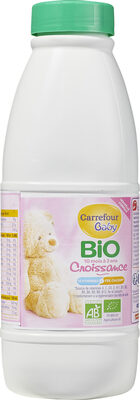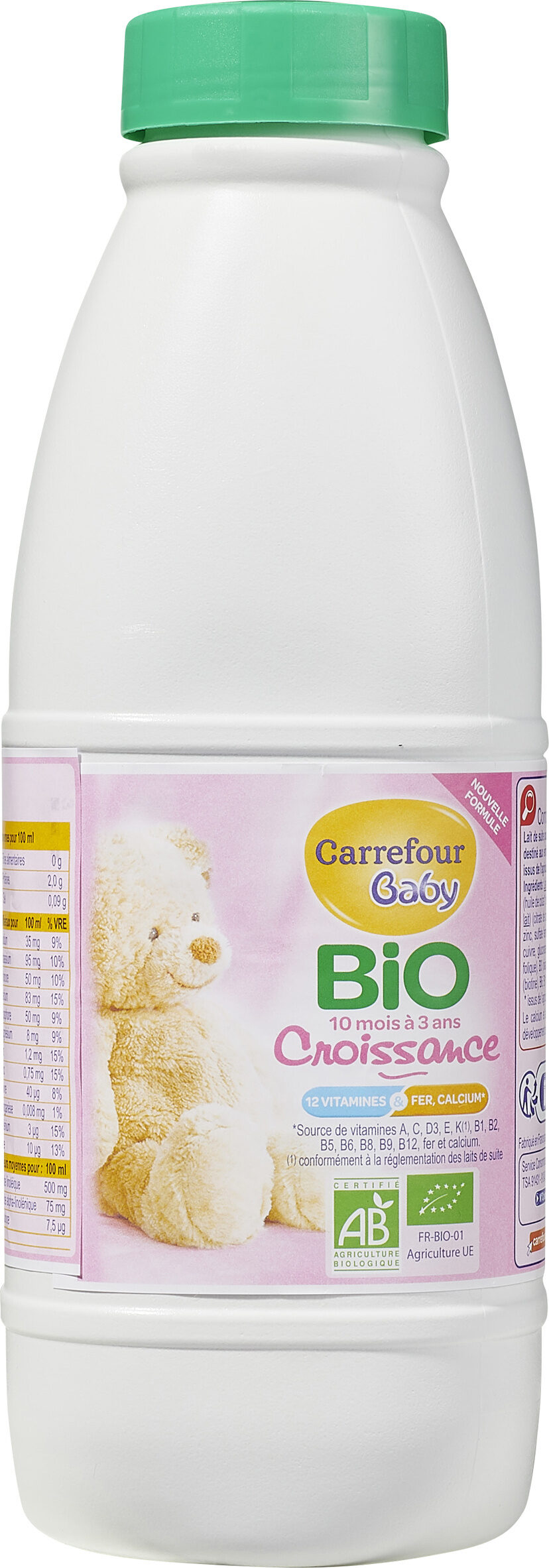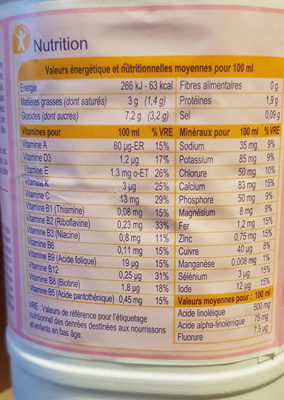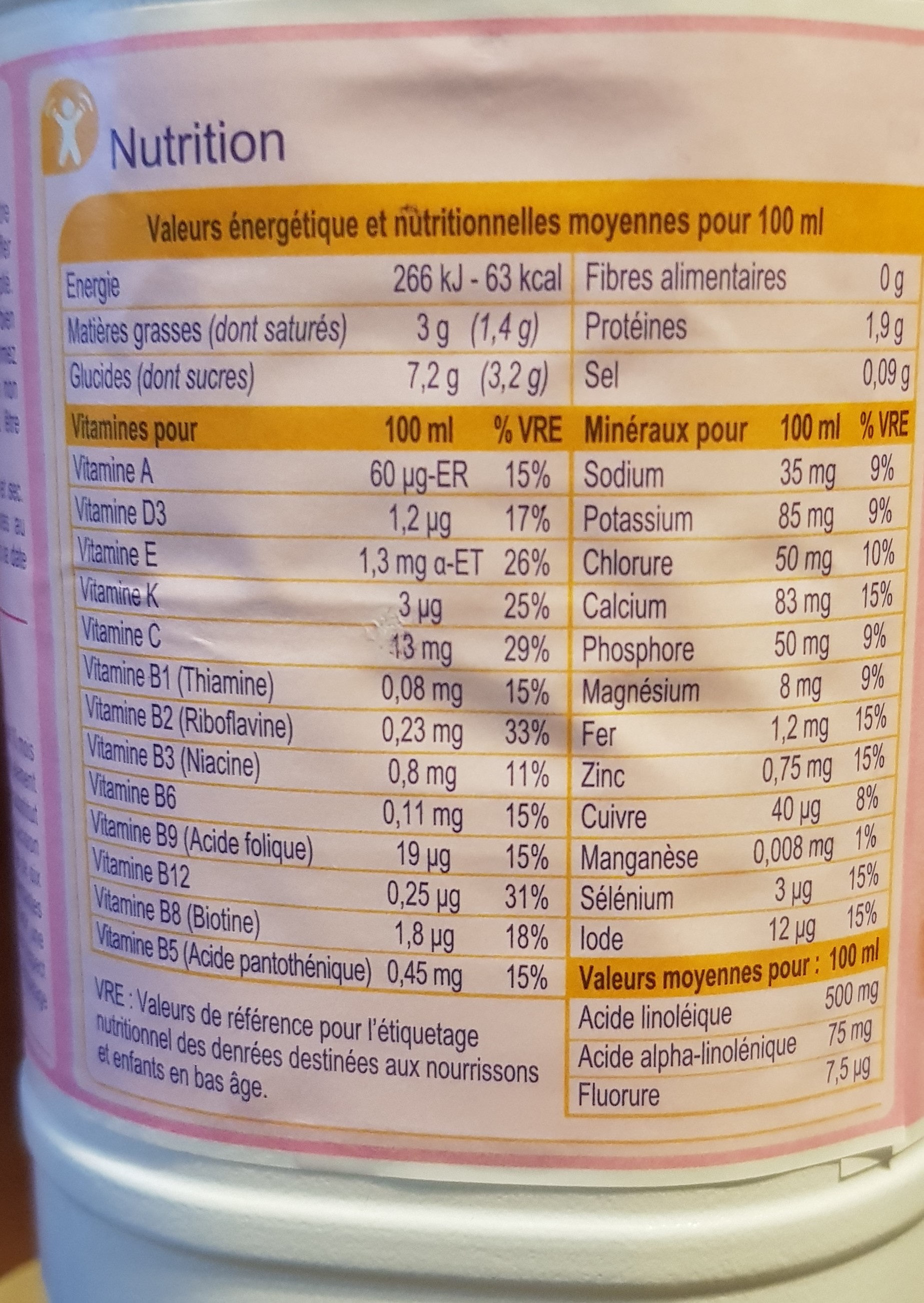Croissance - Carrefour Baby - 1l
Important note: this product is no longer sold. The data is kept for reference only. This product does not appear in regular searches and is not taken into account for statistics.
This product page is not complete. You can help to complete it by editing it and adding more data from the photos we have, or by taking more photos using the app for Android or iPhone/iPad. Thank you!
×
Some of the data for this product has been provided directly by the manufacturer Carrefour.
Barcode: 3270190141235 (EAN / EAN-13)
Quantity: 1l
Brands: Carrefour Baby
Categories: Baby foods, Baby milks, Growth milks
Labels, certifications, awards: Organic, fr:Elabore-avec-les-conseils-d-un-pediatre
Origin of ingredients: European Union
Manufacturing or processing places: France
Traceability code: EMB 35360A - Vitré (Ille-et-Vilaine, France)
Stores: Carrefour
Countries where sold: France
Matching with your preferences
Environment
Carbon footprint
Packaging
Transportation
Report a problem
Data sources
Product added on by openfoodfacts-contributors
Last edit of product page on by org-carrefour.
Product page also edited by gbalara, hebb, kiliweb, ludmila, manu1400, packbot, quechoisir, teolemon, yuka.RjVvT0tLSWRoTklZbHZNRDFUakpvY0JOOXAyeFQxeXNDYzVMSUE9PQ.








